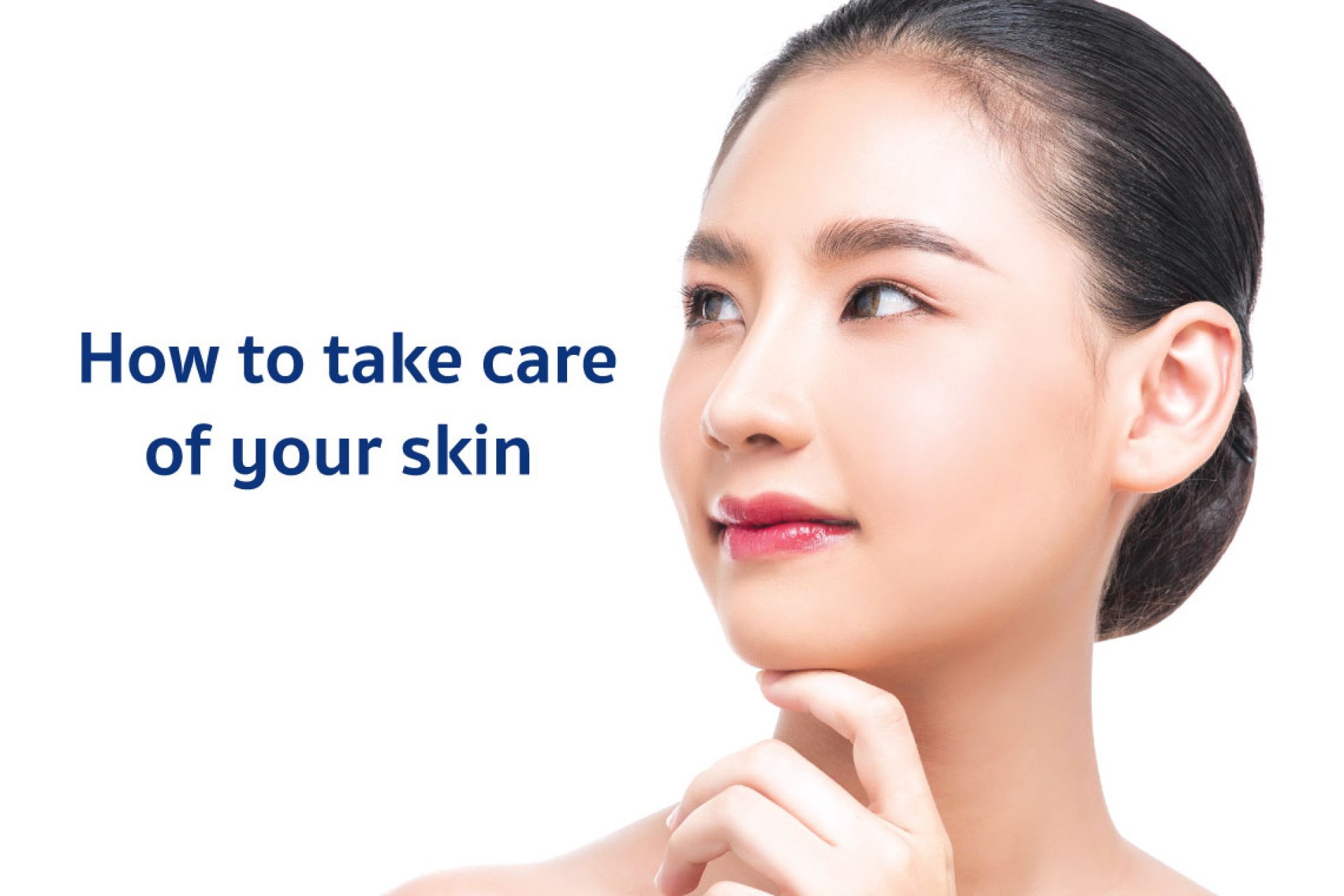How to take care of your skin

Facial skin problems are a significant concern that can diminish women's confidence. These issues often arise from various internal and external factors, such as aging, sun exposure, dust, insufficient rest, or allergic reactions to creams and cosmetics.
Common Facial Skin Problems
- Dry Skin
Caused by a lack of hydration, leading to visible skin lines, dryness, flakiness, and peeling. Makeup does not adhere well, and the skin appears unhealthy. - Dull Skin
Results from exposure to pollutants and sunlight or internal factors like insufficient sleep and accumulated stress. - Wrinkles
These age-related lines are due to a decline in collagen and elastin levels in the skin as one grows older. - Dark Spots and Freckles
These stubborn skin issues often result from genetics or daily life factors, especially exposure to pollutants or prolonged time under intense sunlight.
Methods to Improve Facial Skin
Achieving healthy, radiant skin requires consistent care from within to enhance internal health and reflect outward beauty. Regular maintenance includes:
Internal Care
- Drink plenty of water.
- Consume nutritious foods.
- Get adequate rest.
- Manage stress effectively
External Care
In addition to internal care, external methods such as dermatological procedures can accelerate skin improvement. However, some treatments using chemicals or lasers may have side effects on the skin.
Skin Care Using Stem Cells
Stem cells are an innovative method in regenerative medicine. They help stimulate the body's natural stem cells or increase cell numbers to restore balance and repair tissues. In particular, UC-MSCs (Umbilical Cord Mesenchymal Stem Cells) are recognized for their tissue-repair properties and anti-inflammatory effects, gaining popularity in dermatology and aesthetics.
Mechanisms of UC-MSCs in Skin Rejuvenation
- Cell Generation and Replacement
UC-MSCs can differentiate into various skin cells, such as keratinocytes and fibroblasts, to replace damaged or aged cells, resulting in healthier skin. - Growth Factor Secretion
UC-MSCs release growth factors and cytokines (e.g., EGF, FGF, VEGF) that promote cell division, wound healing, and tissue repair. These substances enhance skin repair and stimulate new blood vessel formation. - Collagen and Elastin Production
By stimulating fibroblasts, UC-MSCs enhance the synthesis of collagen and elastin, improving skin elasticity and firmness while reducing wrinkles and fine lines. - Anti-Inflammatory Properties
UC-MSCs reduce chronic skin inflammation, benefiting conditions like acne, rosacea, and other inflammatory skin disorders. - Accelerated Wound Healing
UC-MSCs facilitate faster healing of wounds and scars by promoting cell migration and division. This property is especially useful for individuals with scars or post-surgery recovery needs. - Vascularization Enhancement
UC-MSCs secrete angiogenic factors that stimulate new blood vessel formation, improving blood circulation and nutrient delivery to the skin for optimal health. - Extracellular Matrix (ECM) Remodeling
UC-MSCs help restructure the ECM, enhancing skin elasticity and strength. - Moisture Retention
UC-MSCs improve skin hydration by strengthening the skin barrier and stimulating hyaluronic acid production, essential for maintaining moisture levels
In summary, UC-MSCs offer a promising approach to facial skin care by addressing various issues. Their mechanisms support skin repair, reduce wrinkles, enhance hydration, improve elasticity, and promote overall skin health, leading to a radiant and youthful complexion.
Junyi Li, Ye Liu, Rui Zhang, Qianyu Yang, Wei Xiong, Yan He and Qingsong Ye. (2024). Insights into the role of mesenchymal stem cells in cutaneous medical aesthetics: from basics to clinics. (https://stemcellres.biomedcentral.com/articles/10.1186/s13287-024-03774-5)


